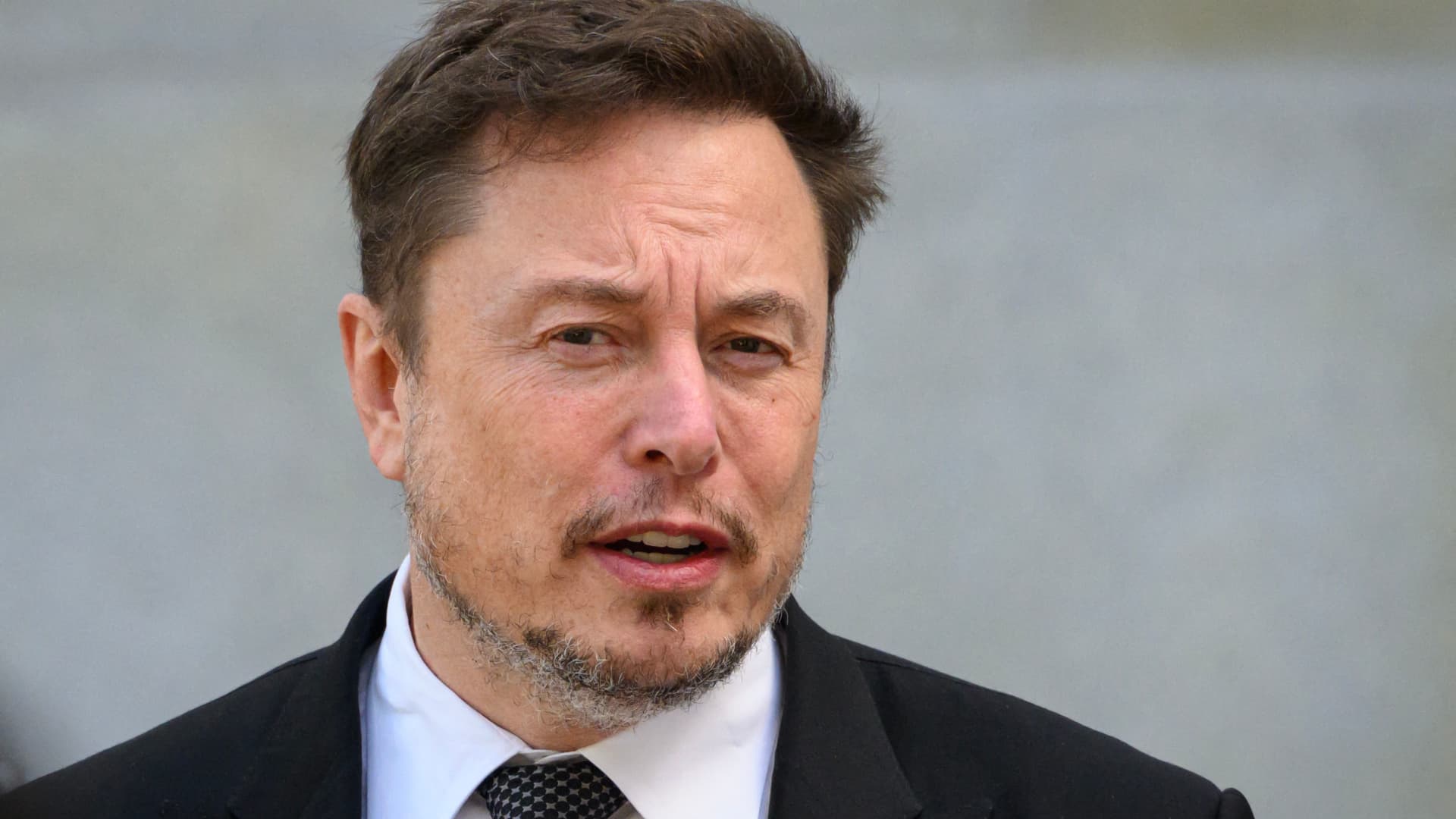Tesla shares drop 5% on Panasonic battery warning, down 18% since Q3 earnings report

Elon Musk, CEO of SpaceX and Tesla, looks on as he attends the Viva Technology conference dedicated to innovation and startups at the Porte de Versailles exhibition centre in Paris on June 16, 2023.
Gonzalo Fuentes | Reuters
Shares in electric vehicle maker Tesla declined nearly 5% on Monday following news that Panasonic, a longtime partner and supplier to the EV maker, had reduced battery cell production in Japan during the period ending September 2023.
The updates stoked investor concerns about softening demand for EVs, especially for higher-priced EVs that may not qualify for tax breaks or other incentives from government programs in and beyond the U.S. Panasonic cells have been used in Tesla’s older, and higher-priced, Model X SUVs and Model S sedans.
During Tesla’s third-quarter earnings call Oct. 18, CEO Elon Musk had cautioned shareholders that interest rates were putting pressure on the company to keep the price of its EVs lower and could hamper consumers’ ability to buy or lease EVs moving forward.
Musk also repeatedly said that Tesla was facing serious challenges with the start of production of its long-awaited Cybertruck.
The Tesla CEO lamented, “We dug our own grave with the Cybertruck.” He also said, on the Q3 call, “I just want to temper expectations for Cybertruck. It’s a great product, but financially, it will take a year to 18 months before it is a significant positive cash flow contributor.”
Shares have dropped more than 18% since that earnings call. Tesla short sellers have made $3 billion from that date through Friday’s close, according to data from Ortex, a financial information services company based in London. The dollar value of short interest in Tesla stood around $18.08 billion or 3.21% of free float, per Ortex data, as of Oct. 27.
Bernstein’s Toni Sacconaghi wrote in a note out Monday that his firm expects Tesla will see “lower margins and disappoint on volumes” in fiscal 2024. Bernstein has a price target of $150 on shares of Tesla currently.
While the Street expects Tesla to hit 2.3 million vehicle deliveries next year, an increase of about 500,000 year over year, Sacconaghi wrote, “To drive growth of 500K units this year, Tesla had to cut prices by ~16%, pressuring overall operating margins by 750 bps. It remains unclear if Tesla can further cut prices enough to drive sufficient demand elasticity without potentially becoming FCF negative. We believe that Tesla may have to guide to deliveries below consensus next year AND face lower margins.”
Bernstein, with its bearish view of Tesla, is forecasting 2.15 million deliveries from Tesla next year with earnings per share of $2.59 compared to the consensus view of 2.3 million deliveries and earnings per share of $3.30.
The bearish sentiment is spreading through various parts of the EV market. Shares of ON Semiconductor, which supplies chips for EVs, were down 20% Monday after the company offered disappointing Q4 guidance.
Tesla did not immediately respond to a request for comment.
Don’t miss these CNBC PRO stories: